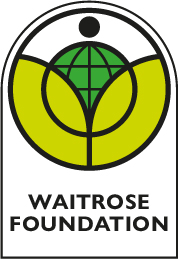

Waitrose Limited retail supermarket in the UK sources fresh produce for its retail stores in the United Kingdom from inter alia South Africa, Kenya and Ghana in Africa. The socio-economic and socio-political environment in which producers of agricultural products operate in these countries are, like most other African countries, not conducive to real economic growth and sustainable livelihoods for workers and their families. The deep rural areas often are scarcely resourced and economically disempowered.
Waitrose and its supply partners in 2005 resolved to secure the sustainability of the supply chain through an investment in the socio-economic development of the communities at the very root of the supply process – the farm workers and their families.
The Waitrose Foundation (Southern Africa) (WF (SA)) subsequently opened its doors in 2006 in Simondium, Paarl as a partnership initiative between UK-based Waitrose and its supply partners. Joining Waitrose as founding partners were Green Marketing International, Poupart and Gordon Fairbrother with 6 citrus growers as the first Grower-members of WF (SA). Namibian Growers later in 2013 also joined WF (SA).
Today the Waitrose Foundation (SA) are supported by Waitrose, 6 Importers, 29 Exporters and 59 Growers producing wine, citrus, grapes, avocados, stone fruit, soft fruit, cherries, dates and top fruit on 322 different farms across Southern Africa.
The Waitrose Foundation (SA) endeavours to improve the standards of living of farm workers employed by Waitrose’s Grower supply partners in Southern Africa.
Our Vision is to achieve:
To achieve this Vision, the WF (SA) strives to:
Create opportunities through entrepreneurial and business education and training to improve household income, buying power, and opportunities for self-fulfilment.
Ensure sustained physical and mental health to avoid human suffering, improve mortality rates, decrease absenteeism, and secure income levels through a sustained capacity to work. Also integrated community wellness initiatives and the empowerment of leaders in communities to accept ownership for the sustained development and well-being of their communities.
Empower agri-worker communities through Education and Training to enhance their competencies, improve productivity, increase their income potential and enhance career prospects.
Secure a sustained natural environment to ensure long-term food security and production.
Ensure quality sanitation facilities, access to safe drinking water for workers at home and at work, including water sources, mobile water and tanks for communal benefit.